
President-elect Donald Trump has long supported House Speaker Mike Johnson — hosting him on election night, bringing him to the Army-Navy college football game last weekend and backing him privately despite conservative complaints about the House’s actions.
That’s why it stunned many Republicans when Elon Musk — with Trump’s go-ahead — helped tank Johnson’s short-term government funding deal Wednesday afternoon by unleashing a barrage of social media posts starting early in the morning and calling the deal “criminal.”

Trump followed up with threats to oppose any Republican who voted for it in a 2026 primary. And he injected another complication, calling for the debt ceiling — a tool Republicans have used for years to pressure Democrats into spending cuts — to be lifted or eliminated entirely before he takes office. With funding expiring at the end of the night on Friday, Trump’s last-minute demands pushed the government perilously close to a shutdown.
The broadsides from Mar-a-Lago left Republican lawmakers wondering — given how much the president-elect and the House speaker communicate — why it took until the final moment for the dramatic schism between Trump and Johnson to burst into view, and for the deal to fall apart.

“It’s all very strange,” one GOP lawmaker told CNN. “This was completely avoidable.”
By Thursday evening, Trump was backing Johnson again as he tried to advance a different plan that sought to appease the GOP standard bearer’s demands. The 24-hour whiplash both underscored Johnson’s weakness and Musk’s opening with Trump. The bill — which would have extended government funding for three months, lifted the debt ceiling until 2027, extended the farm bill and included $110 billion for disaster relief — failed, with 38 Republicans voting against it.
The chaotic series of events has left House leadership scrambling, and the episode has raised questions about how Republicans on Capitol Hill, with a narrow majority and competing factions, will function once Trump takes office.
And now Democrats, who helped Johnson save his job last spring, say they are through helping the Louisiana Republican manage his unruly conference.

Trump wants ‘decks cleared’
Johnson was already close to an agreement with congressional leaders on a short-term measure to fund the government when he sat in a private box with the president-elect at the Army-Navy game last weekend.
In video captured from the game, Trump can be seen deep in conversation with Johnson, incoming Senate Majority Leader John Thune and Vice President-elect JD Vance.
Trump, according to people familiar with the discussion, told Johnson that he wanted a full-year spending bill — not a short-term resolution — and that he wanted the debt limit to be a part of that deal.
“He wanted the decks cleared,” one source with knowledge of the conversation told CNN, alluding to Trump’s desire to begin his term with the more contentious spending fights in the rearview mirror so Congress could focus on enacting his agenda.
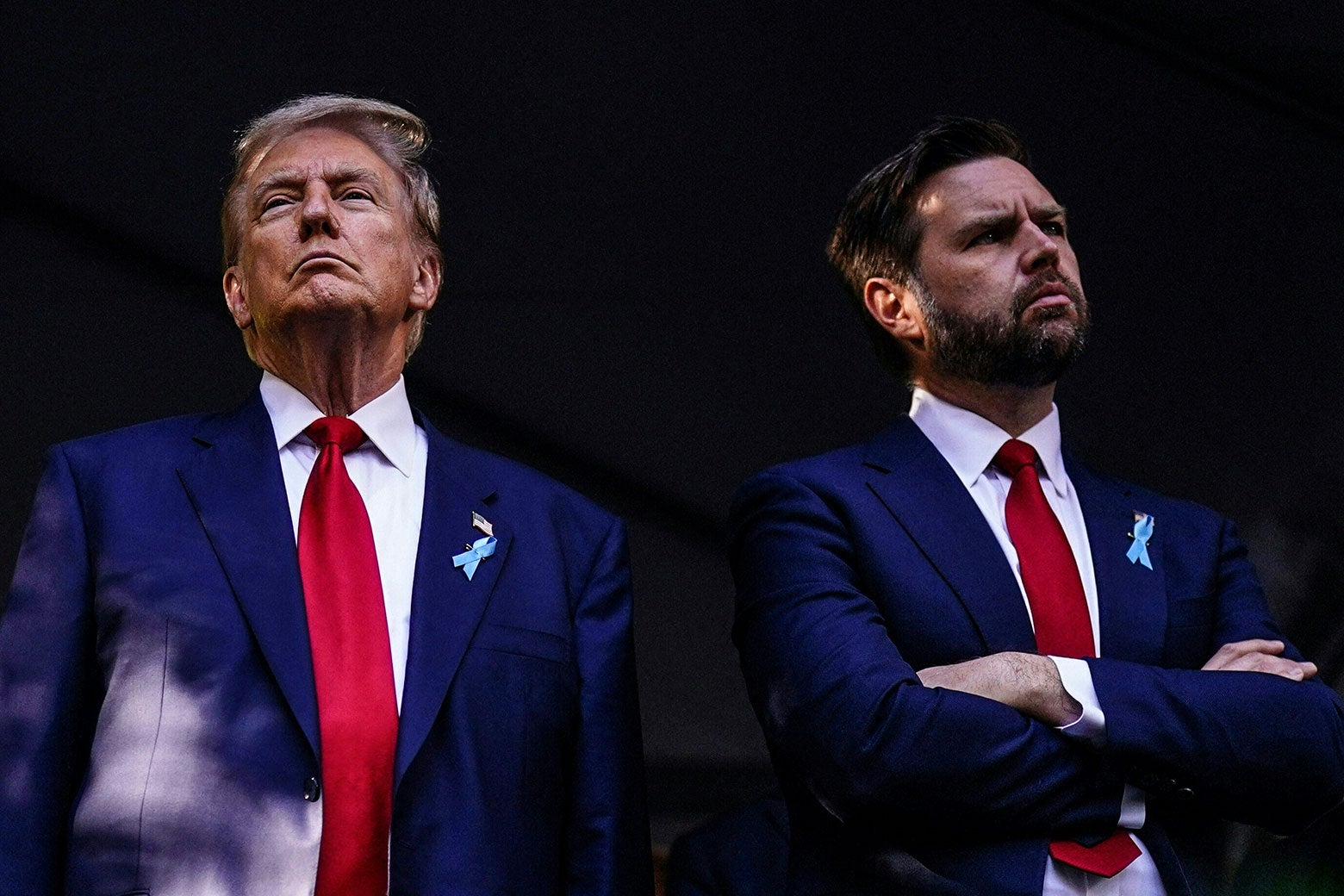
At the game, Johnson, the source said, tried to placate the president-elect without promising to deliver on those specific demands — while acknowledging there was nowhere near enough time to reach agreement on the various bills that comprise legislation covering the government’s annual spending, known as an “omnibus.”
Later in the week, sources said Trump was polling allies and advisers on what they believed were the pros and cons of a short-term funding measure or the longer-term bill he started demanding publicly on Wednesday.
“It started when the text came out and some of the details were being reported out. Up until that point, he was still trying to understand the pros and cons of short-term versus long term,” a Trump adviser told CNN. “Once the bill text came out and the pork of it was being reported, he wanted to get involved.”
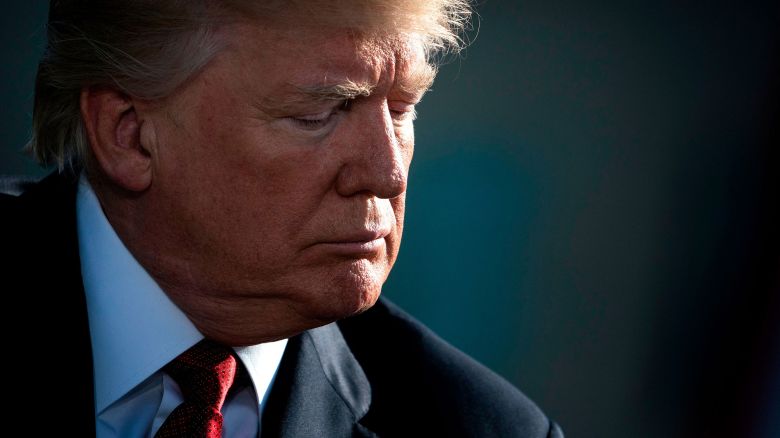
Throughout Wednesday, Trump and Musk discussed their opposition to bill — even before Musk began intensely attacking the package on X. Both were in agreement that it gave too much to Democrats and was too expensive. Sources close to Trump insist that Musk was in lockstep with the president-elect when he took to X to go after the proposal and anyone who potentially voted in favor of it, although Democrats raised alarms that Musk’s public opposition, which came before Trump’s, was a sign of his power over the president-elect.
Vance has been tasked to be Trump’s eyes and ears on the Hill, and is handling the bulk of the discussion with Johnson. On Wednesday night, the vice president-elect was seen heading into the speaker’s office with Republican leadership, while Trump enjoyed dinner with Musk and Amazon founder Jeff Bezos at his Mar-a-Lago resort. Trump has been calling lawmakers on the matter but is letting Vance – an Ohio senator for a couple weeks longer – deal with the nitty gritty behind closed doors, a source familiar with the discussions said.
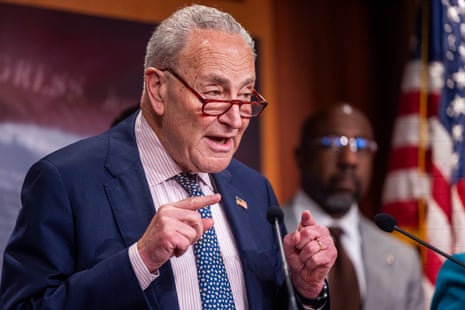
Debt ceiling questions
Trump’s allies in Mar-a-Lago had reached out to the speaker and his team in recent weeks, telegraphing the president-elect’s desire to deal with the debt limit before taking office.
But his position wasn’t widely known. The conventional wisdom, according to several Trump allies, advisers and GOP officials, had been that they’d grapple with the debt ceiling as part of forthcoming talks on a spending bill in March, or a party-line package to implement Trump’s immigration and energy priorities.
And even in conversations one week ago, three sources suggested the debt ceiling was on no one’s radar, with at least one Trump ally telling CNN, “That will be a June issue.” Adding such a politically toxic debate to the lame-duck to-do list was a plot twist.

“Inserting the debt ceiling conversation certainly added a new element,” a Trump adviser told CNN.
The transition did not respond to a request for comment. CNN has reached out to Johnson’s office.
Trump, as he and his aides have communicated, wants to start the new Congress and his second term with a clean slate — and without the potential for Democrats to retain a bargaining chip that could dilute their agenda.
Emboldened by even a razor-thin majority in both chambers, Trump believes Republicans will be in a more powerful position to demand steeper spending cuts during negotiations next year.
“Mar-a-Lago has signaled a lot of questioning about letting a debt limit slide into next year,” a source involved in the conversations told CNN, referring to the Palm Beach members’ club where Trump and his advisers have been crafting policy positions behind closed doors. “Why are we letting something that will be a Dem leverage point remain in place for the next year?”

Wednesday’s collapse
As recently as Wednesday afternoon around 1 p.m., House GOP leaders were telling fellow Republicans that they felt “positive” about having the votes to pass the negotiated deal, according to multiple sources close to the talks. Many GOP lawmakers weren’t happy with the measure — especially given the rushed timeline — but it seemed they were willing to swallow it.
A whip count, though, made clear Johnson did not have the Republican support he’d need to pass the measure with Democratic help.
One Republican attributed the lack of communication between Johnson’s office and rank-and-file members for why leadership was out of step with where the conference was. Lawmakers, for example, were surprised to find out that a pay raise for themselves was included.
“We knew 92% of what this was going to be well before, but that last 8% was doozy,” Pennsylvania Rep. Dan Meuser told CNN.
The bill may have been “already dead” by mid-day Wednesday, as one GOP lawmaker put it, but Musk’s megaphone made sure it was buried.
Social media posts by Musk and Donald Trump Jr. fueled a surge of disgruntled phone calls to lawmakers’ offices.
By around 3 p.m., one GOP source described the situation as “collapsing.” And Johnson’s troubles quickly evolved from internal grumbles about the funding bill to major, public questions about his future as speaker. By Thursday morning, one of the most vocal House conservatives, Rep. Marjorie Taylor Greene of Georgia, seemed to have reversed her support for the Louisiana Republican and was openly floating the unlikely situation of Musk for speaker.
Multiple frustrated Republicans have told Johnson and his leadership team that they should have voted Wednesday when they had the votes, according to a person familiar with the discussions.
“We will re-group and we will come up with another solution,” Johnson told reporters after the Thursday vote failed. “So stay tuned.”
Trump-backed spending deal fails in House, shutdown approaches

The vote laid bare fault lines in Trump’s Republican Party that could surface again next year when they control the White House and both chambers of Congress.
Trump had pressured lawmakers to tie up loose ends before he takes office on Jan. 20, but members of the party’s right flank refused to support a package that would increase spending and clear the way for a plan that would add trillions more to the federal government’s $36 trillion in debt.
“I am absolutely sickened by a party that campaigns on fiscal responsibility and has the temerity to go to the American people and say you think this is fiscally responsible,” said Republican Representative Chip Roy, one of 38 Republicans who voted against the bill.
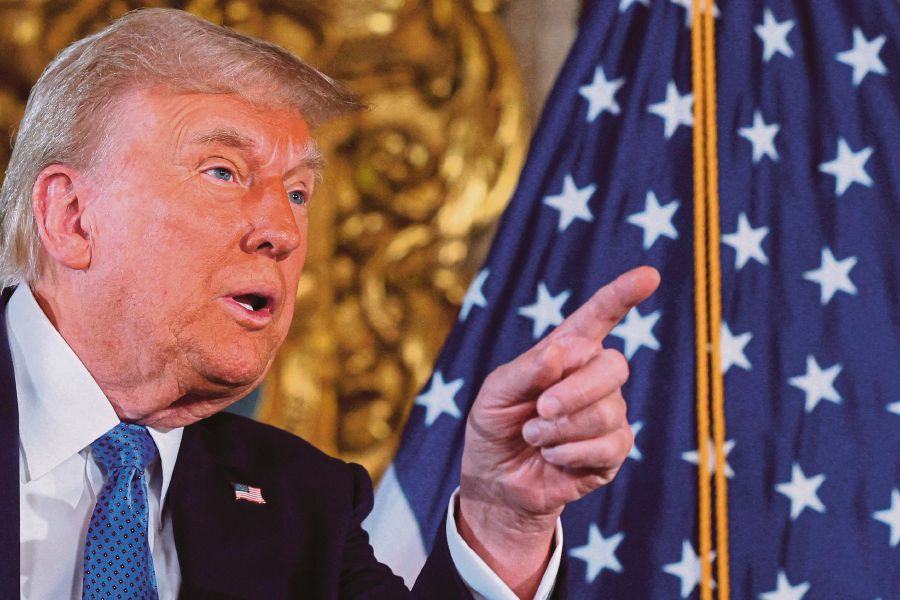


Johnson before the vote told reporters that the package would avoid disruption, tie up loose ends and make it easier for lawmakers to cut spending by hundreds of billions of dollars when Trump takes office next year.
“Government is too big, it does too many things, and it does few things well,” he said.
TEEING UP TAX CUT
Democrats blasted the bill as a cover for a budget-busting tax cut that would largely benefit wealthy backers such as Musk, the world’s richest person, while saddling the country with trillions of dollars in additional debt.
“How dare you lecture America about fiscal responsibility, ever?” House Democratic Leader Hakeem Jeffries said during floor debate.
Even if the bill had passed the House, it would have faced long odds in the Senate, which is currently controlled by Democrats. The White House said Democratic President Joe Biden did not support it.

Previous fights over the debt ceiling have spooked financial markets, as a U.S. government default would send credit shocks around the world. The limit has been suspended under an agreement that technically expires on Jan. 1, though lawmakers likely will not have to tackle the issue before the spring.
When he returns to office, Trump aims to enact tax cuts that could reduce revenues by $8 trillion over 10 years, which would drive the debt higher without offsetting spending cuts. He has vowed not to reduce retirement and health benefits for seniors that make up a vast chunk of the budget and are projected to grow dramatically in the years to come.
The last government shutdown took place in December 2018 and January 2019 during Trump’s first White House term.
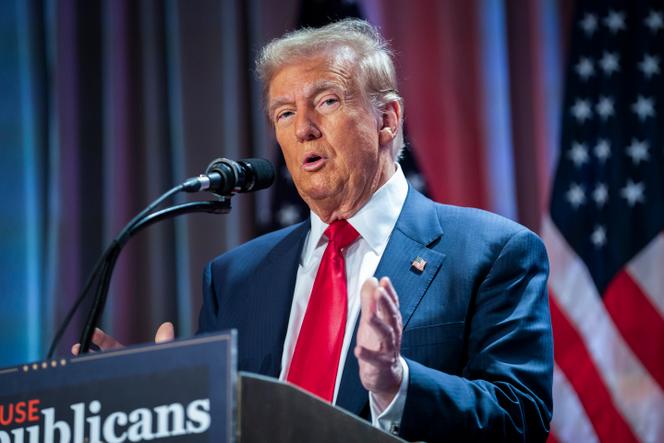
The unrest also threatened to topple Johnson, a mild-mannered Louisianan who was thrust unexpectedly into the speaker’s office last year after the party’s right flank voted out then-Speaker Kevin McCarthy over a government funding bill. Johnson has repeatedly had to turn to Democrats for help in passing legislation when he has been unable to deliver the votes from his own party.
He tried the same maneuver on Thursday, but this time fell short.
Several Republicans said they would not vote for Johnson as speaker when Congress returns in January, potentially setting up another tumultuous leadership battle in the weeks before Trump takes office.
Democrats dodge a debt ceiling deal
After years of decrying GOP hostage-taking, they’re balking at Donald Trump’s request for a clean increase to the borrowing limit.

House Democrats are finding themselves in uncharted waters after President-elect Donald Trump and House Republican leaders proposed raising the federal debt limit, potentially taking a default off the table for the first half of Trump’s second term.
The provision embedded in the newly revised continuing resolution set for a House vote Thursday evening looks a lot like what Democrats wanted Republicans to support when presidents of their own party were in power: It suspends the debt ceiling through Jan. 30, 2027, without any corresponding spending cuts.
When Trump first publicly floated addressing the borrowing limit, or eliminating it entirely, on Wednesday evening, it piqued the interest of some Democrats who have long railed against it as nothing more than a potential lure for Republican hostage-taking.
“Let’s get rid of the debt limit. Let’s be done with it,” said Rep. Rosa DeLauro (D-Conn.), the top Democrat on the Appropriations Committee. “I agree with President-elect Trump,” declared Sen. Elizabeth Warren (D-Mass.), endorsing abolition.

But by Thursday evening, when it became clear that Republicans wanted only a two-year pause hitched to a stopgap funding package that dropped some of their priorities, they rallied against it.
“I’m not simply a no. I’m a hell no,” House Minority Leader Hakeem Jeffries told his caucus in a closed-door meeting, per three people familiar with his remarks.
Why the turnabout?
As much as Democrats would love to disarm this particular legislative time bomb, they’re not in any mood to negotiate with Republicans after Trump and billionaire ally Elon Musk sabotaged the prior deal to keep the government open and provide billions in disaster and farm relief.
“We have a bipartisan, bicameral negotiated deal that we should vote on to keep the government open,” Rep. Scott Peters (D-Calif.) told reporters.
Rep. Brad Schneider (D-Ill.), the incoming chair of the centrist New Democrat Coalition, said the GOP decision to renege on the initial deal “is so bad that it makes it virtually impossible” to address the debt limit.
“The conversation we need to be having is, how much money are we going to bring into this government to pay for the things we want to do, and given how much money we think we can bring in, what are the things that are most important for us to do?” he said. “And that conversation gets usurped by the whole debate around debt limits and hostage-taking.”
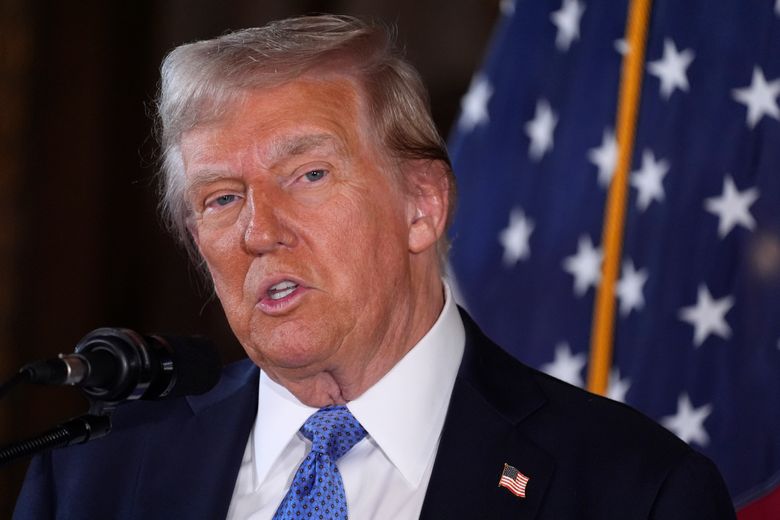
Jeffries sent a clear signal on his debt-limit position to fellow Democrats in a social media post Thursday morning: “GOP extremists want House Democrats to raise the debt ceiling so that House Republicans can lower the amount of your Social Security check. Hard pass.”
Other Democrats quickly fell in line, including some who have long decried brinkmanship over borrowing.
“We have at least six months to resolve the debt ceiling. But we only have hours to prevent a government shutdown. Republicans need to honor the agreement they negotiated and stop manufacturing crises that harm hardworking Americans,” top Budget Committee Democrat Rep. Brendan Boyle (D-Pa.) said in a statement.
The widespread Democratic opposition means Thursday’s planned vote — under suspension of the rules, requiring a two-thirds margin — will likely fail. Aside from Democrats, a cadre of conservative House Republicans also appears likely to oppose any attempt to hike or abolish the debt ceiling.
That could leave Trump and House Speaker Mike Johnson in a familiar spot: negotiating with the other party over what they would want in return for raising the debt limit.
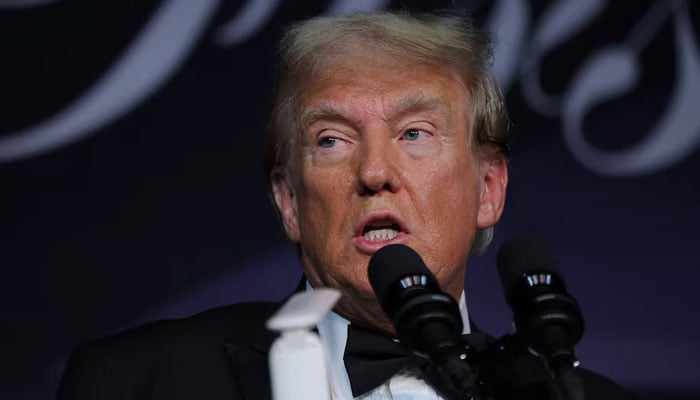
Congress barrels toward shutdown after House fails to pass Trump-backed funding bill

Members of the news media linger outside of the office of House Speaker Mike Johnson on Capitol Hill in Washington, DC, on December 19. Leah Millis/Reuters
Congress is barreling toward a government shutdown after the GOP-led House failed to pass a funding plan backed by President-elect Donald Trump on Thursday, leaving Hill Republicans scrambling to find a path forward.
The Trump-endorsed plan was opposed by almost all Democrats, who are frustrated and angry after the president-elect tanked an earlier bipartisan deal, and a significant number of Republicans.
Government funding expires at the end of the day on Friday.
The GOP measure included a three-month extension of government funding, a two-year suspension of the debt limit into January 2027, as well as roughly $110 billion for disaster relief, according to five sources. The House voted 174 to 235, with 38 Republicans voting against the measure and 2 Democrats voting in favor
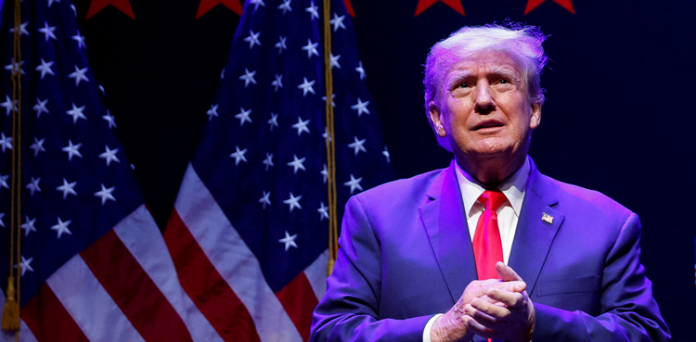
House Minority Leader Hakeem Jeffries told House Democrats in a closed-door meeting ahead of the vote that he was “not just a no, I’m a hell no,” on the new GOP proposal, according to a source in the room.
Democrats have argued that the two-year suspension of the debt limit will help Trump pass his tax plan, and they aren’t willing to make it easier for him given their opposition to it.
“This bill is designed to set up the GOP tax scam 2.0,” Jeffries said in remarks on the House floor ahead of the vote. “That’s what this bill today fundamentally is all about.”
Trump upended the government funding effort on Wednesday when he came out against the bipartisan plan that House Speaker Mike Johnson had backed. Trump is now demanding that any deal to avert a shutdown also address the looming debt limit, a complex issue that typically requires weeks to months of painstaking negotiations on Capitol Hill to resolve.
Trump said Thursday that he supports the new GOP proposal, saying on Truth Social, “All Republicans, and even the Democrats, should do what is best for our Country, and vote “YES” for this Bill, TONIGHT!”

Vice President-elect JD Vance blamed Democrats after the vote failed, arguing they were trying to prevent Trump from “negotiating leverage” in the first year of his new term and claiming Democrats have “asked for a shutdown and I think that’s exactly what they’re going to get.” Vance did not respond when pressed by CNN that 38 Republicans also voted against the bill.
Johnson, for his part, also blamed Democrats for the failed vote and told reporters, “We will re-group and we will come up with another solution. So stay tuned.”
As of Thursday night, the House was not expected to hold any additional votes as Republican leaders meet behind closed doors to chart a path forward.
House Majority Leader Steve Scalise said that Republicans are unlikely to bring the proposal through the House Rules Committee to try to pass it with a simple majority. “We are going to go back to the table and keep negotiating like we did last night,” he said.

Pressed on whether Republicans would try to bring it through the Rules Committee, he said, “Not on this bill. Not right now.”
As GOP leaders huddle privately on next steps, hardliner Rep. Chip Roy trashed the failed funding plan and signaled he wants more cuts to any future bill.
“I’m not gonna vote for another debt limit increase without knowing what the actual cuts will be. That’s a nonstarter,” a defiant Roy said.
Trump posted on Truth Social earlier on Thursday that Roy was “weak and ineffective” and called for a primary challenge.
Rep. Gregory Meeks, a Democrat from New York and a close ally of Jeffries, said he sees no reason for Democrats to provide votes for Johnson’s redrafted spending bill.
“No, I think we negotiated the deal in good faith,” Meeks told CNN when asked if Democrats should support the bill.
“We negotiated,” he added. “That should be the bill that goes over to the Senate.”
The sentiment is reflected in many corners of the Democratic Party. A half-dozen Democratic lawmakers told CNN after the release of the new GOP proposal that they did not believe they would support the plan.
House Republicans brought the new proposal to the floor under a maneuver that required a two-thirds majority to pass.

For Democrats, trust is broken with Johnson, ushering in a new era on the hill
Democrats now say they are through helping Johnson manage his unruly caucus after the speaker sunk the earlier bipartisan agreement to keep the government funded through March at the behest of Trump.

“I think that we’re all very disappointed. I mean again, your currency here is your word,” Rep. Richard Neal of Massachusetts, the top Democrat on the House Ways and Means Committee, said.
The last 48 hours have gone a long way to unravel what had been a cordial and oftentimes fruitful relationship between Johnson and his Democratic counterpart, Jeffries. The two had found ways to keep the government funded, passed a massive defense policy bill, increased US aid to Ukraine and secured Johnson’s speakership from the far right wing of his party. What Jeffries had found in Johnson was a partner who he did not always agree with, but came to trust.
Now, Democrats say that has been shattered.
“Listen, we had a deal,” said Rep. Susie Lee, a Democrat from Nevada. “We had a deal that was negotiated. It was a bipartisan deal, and they’re the ones who walked away from it. Not us. And you know, keep your word and he’s gotta learn that.”
Democrats largely had respected Johnson’s ability to in their view “do the right thing,” despite the fact they had serious policy disagreements with him at times. Many applauded his bringing a Ukraine aid to the floor when many in his party and his own voters were urging him against it.
But the re-entry of Trump into the picture and Johnson’s need to remain in the incoming president’s good graces in order to clinch the speaker’s gavel are quickly ushering in a new era for the speaker and his relationship with his Democratic partners in the House. It’s a shift that many had thought they’d have time to adjust to in January when Republicans began their efforts on border security and taxes and the parties would retreat to their respective ideological corners. But, Democrats are realizing the new reality is already here.
“He is just gone back on an agreement that we had that put the needs of the American people first and now they are putting a bill on the floor that they never even bothered to pick up the phone and discuss,” Democratic Whip Katherine Clark told CNN. “To say that it is straining the relationship is an understatement.”
This story and headline have been updated with additional information.


































:max_bytes(150000):strip_icc():focal(999x0:1001x2)/catherine-ohara-013026-7-4b5b413a646d4f15a1fd15ac8b933811.jpg?w=1200&resize=1200,0&ssl=1)








